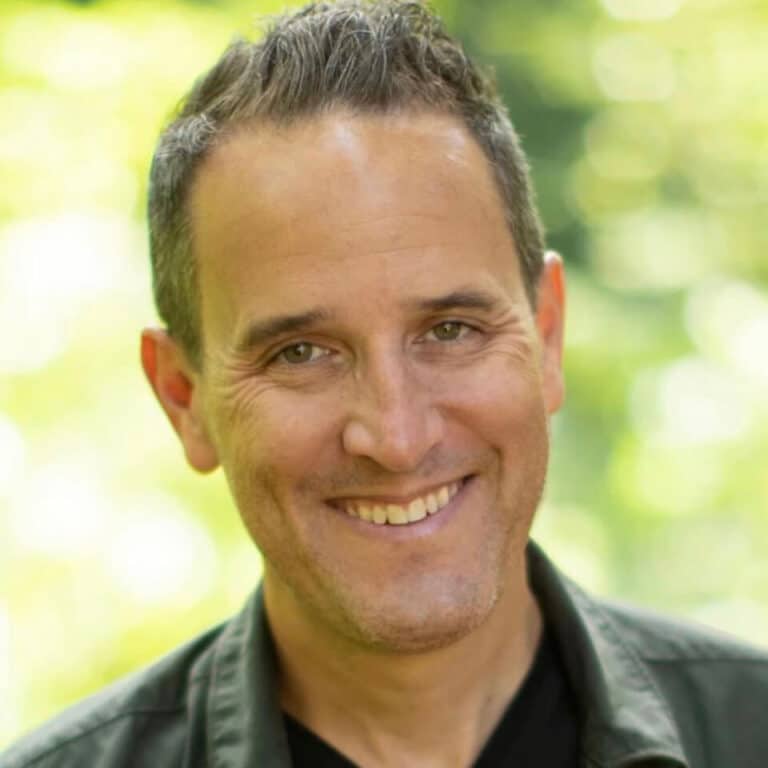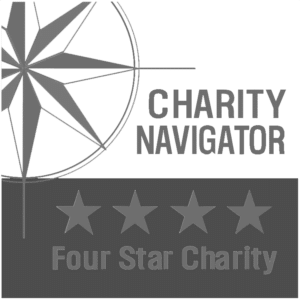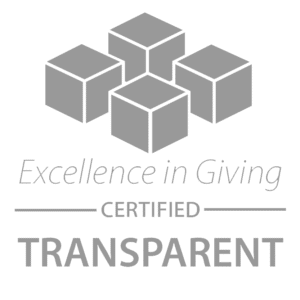You are listening to Together by AGCI. I’m Melissa Rush. Today we have the honor of talking to Pastor Doug Frazier. In addition to being the pastor at Living Hope Church, Doug is also married to AGCI president Hollen Frazier and has had a front row seat to this work for decades. I really enjoyed our conversation and hope it challenges you to step up and care for those in need. Let’s get into our conversation.
Well, we are so honored to have Pastor Doug Frazier joining us today. Thanks so much for making the time to chat with us, Doug. Super happy to be a, a part of this today. Can’t wait to share my heart, so it’s gonna be fantastic. Awesome. Well, we appreciate your time. I would love if you could start by just sharing a little bit about yourself and your journey to become a pastor. Yeah. So, I’m, I’m doing life in Tennessee where I grew up and I, at an early age just felt like, you know, 18, 19 years old. Like, you know, I wanted to do more with my life than just, you know, do the business school that I was in at, at Tennessee Chattanooga. And I just felt this, this call to like, hey, I’m, when I finish college, I’m gonna go on the seminary and prep myself for a life of service.
And I didn’t know how that would all take shape, but I, I knew it was what I needed to do. And what confirmed it even more was this beautiful young lady came in my life whom I, I now call my wife Hollen Frazier. And she is, was special because, you know, she challenged me young, like, hey, let’s do this. Let’s do this life together. And we got married young and everything, but I left all that I knew in Tennessee to move all the way to Portland to do seminary, which is an odd thing. Normally people leave Portland to go to seminary, you know, they want to get out. But God placed me right on Hawthorne at Western Seminary and I studied theology and got married to Hollen halfway through seminary and we’ve been married ever since and doing life and ministry together. So. Wow, that’s really cool. That’s a, that’s an awesome story. So, you said that you were about 18 or 19 when you kind of felt like, okay, maybe this is something I wanna do. When you were a kid, like what did you, was this ever on your mind or was this Yeah, my best friend’s dad was the pastor of our church, and I always admired him. He was such a great man, Dr. Wayne Barber.
And he, he was, he was just fun to be around, and he was full of life and energy, and he was just such an inspiration in my life. So yeah, it was on my mind, but I, I didn’t know that I fit the bill because in my teen years I wasn’t exactly a, a pastoral in my, how I handled decision making. I have a few regrets in my teen years, but most people do. Yes. But I, I, I look back and how God shaped me from failure as a teenager toward really kind of him meeting me and impacting my heart to say, I don’t wanna be that way anymore. So it was, it was really cool to, to grow up quickly and then to realize that hey, this is where I’m gonna go with my life. Yeah. Yeah. That’s really cool. Thank you for sharing that. So, as you know, considering your, your wife is the president of A J C I Yeah. We are a faith-based organization and obviously our work is, is motivated by our desire to, to answer God’s call to care for kids and families in need. I would love for you to kind of speak to that calling and, and God’s heart for vulnerable kids and families. Yeah. So, part of my journey too is I worked for 13 years with All God’s Children.
I passionately believe in the work and Hollen and I kind of were co-led together for a season and I started as a driver in Guatemala. A driver first. Yeah. I, I didn’t have much to do cuz I didn’t speak the language and Hollen had been down there, we were apart. She lived with my oldest son Andrew. We were apart for seven months Wow. In his first couple of years of life. And so I was a, a young pastor and I just said, you know, we can’t live apart. So I resigned, moved to Guatemala and my first job unpaid, but formerly on staff was driver for All God’s Children. And I worked my way up the chain until one day I was the executive director. And that was a, a kind of a great time of learning and growing a lot of challenges that we faced in that journey. But yeah, God’s call to the orphan, you know, you can’t read Bible and not hear that Jesus didn’t care about the poor and the needy. Yeah. He even cited orphans in one of His most profound statements. He tells His disciples; I will not leave you as orphans. He uses the word orphan, and you say, well that has nothing to do with orphans. Yes, it does because Jesus always, He would always choose illustratively what was around him.
He would pick a tree, He would pick, you know, you know, anything that would be permanent, figurative, metaphorical. And no doubt when he’s talking to the disciples, there probably was orphans nearby, whether just orphans by day or permanently orphaned. And so, He actually said to them, I will not leave you like that. Which is the worst state, you know, in traveling across the world in my years with All God’s Children. When you go in orphanages and kids don’t cry anymore, that’s about his, that’s a despair that you can’t understand till you see it with your own eyes and, and all your senses take in. But I’ll say that that’s why Jesus used that word for His disciples, I won’t leave you in the worst state, you could be left, which is orphaned. And so, so that’s, that’s what I come back to with real passion in my life. So, like currently, I, I don’t formally work for All God’s Children. I pastor a church, I do some other things, but I am passionate about this work. You know, I, I support a very, my wife in a very complex world and we still bounce a lot of things off of each other. But one thing we p both passionately share together is a call to the orphans because I don’t know how you could say I believe in Jesus and not care about orphans because they mattered to him.
They mattered; children mattered to him. He actually rebuked His disciples when kids were coming to Him and He said, you don’t, you don’t mess with children pretty much, you know, they’re, they’re mine. Let ’em come to me. So, I share that passion and desire to see the cause of making sure trauma and, and, and hurt and pain is met by someone and All God’s Children’s doing a tremendous job of building an incredible model to take to the, the world and influence this area of, of service. And I’m, I’m super proud of what’s happening. Yeah, yeah. No, I totally agree with everything you just said. Yeah. So, as you kind of alluded to, you know, and I have, I have walked into those places. I’ve, I’ve, you know, walked into rooms with kids that, you know, like you said, I mean you kind of expect them to turn to you to cry, to do all the things little kids do and to walk into a room and have it be silent. It’s kind of, it’s actually like a, I don’t wish the experience on anyone. It’s, it’s really tough, but it’s life changing for sure. Yeah. Yeah.
But it, you know, in this work you have to kind of bear witness to a lot of suffering, and I would love for you to speak to that from a biblical perspective, because that can definitely, you know, why is that in the, why, why is that happening? Why is that in the world? That’s, that’s tough. Yeah. That that, you know, it’s a complex question. You know, seminarians call it the problem of evil, the p o e and it’s what do we do with why does God allow evil and consequence to go on? And so, you gotta come to kind of a, a conclusion in your heart that he’s the answer to those things and He wants to use people like us and hopefully people watching this, He wants to use all of us to be a part of that remedy. Now He could have chosen right after Adam and Eve to shut the whole human thing down, but He let it happen. And so, we do have, we do have famine, we do have disease, we have evil, we have orphans, we have all this, this around us. We have a broken world. And what the answer is eternally in my view, is an acceptance that Christ is the answer for those things. And I believe fully that putting your faith in Him is an eternal answer to an earthly challenge. We’re always, the poor will always be with us.
This is what scripture says because this world is broken. And when you travel places like India, which I have multiple times or to, to Nepal, to parts of Africa where I’ve been, and you see abject poverty, not, not American poverty. No. That will work for food signs on the side of the road. That’s, that’s not good either. It’s not good for kids in America to be in foster care. Those are all bad things. But, abject poverty is where like, they don’t even have food and water. Yeah. They don’t even have basic necessities in their surrounded by filth. They live in, in horrific situations. This side of heaven is how I answer this, this side of heaven. I mourn that humanity’s that way and I mourn that we can’t do more to do it. But if we just look at it on the total, we would all quit and just say it’s too hopeless. Yeah. But we all have to find a way to just do something, to play a role to sponsor a child, to make a difference some way. And that’s just that little piece of light that we can add to that broken darkness. So, I tell people we either blame God or we claim God in this situation. And that’s what I would just challenge people to do.
To say, when you see hopelessness and despair, when you see hurt and brokenness claim God in it, God please do something about that. Use me to do something about that. Make other people’s problems yours to speak into, to make a difference. Yeah. Thank you for speaking to that because I know, I mean I get asked that question a lot just like when I come back from these trips and see really hard things or like how can that exist? You know? Right. And it is, it’s, I mean it’s challenging. It is challenging. It’s really hard to see and it doesn’t make it okay. But I think you do have to find the hope. And there is so much, there is so much hope. I mean, I have seen kids who, I mean, I can’t even just unimaginable trauma and suffering that they have been through, that you, you hear their stories and you’re like, well how can, how will they ever be Okay, how will that ever be? Okay. But we see, we see the hope through this work. Like Right. They find joy again. And to see a child’s face like light up again after experiencing, you know what I mean? And that Right. That is God, I, I mean I think like that’s how that’s made possible.
You know, one of my mother-in-law, Jan’s coin statements she used early on in All God’s Children, it really impacted me, was making a difference one child at a time. And I think we probably still use it today, but it, that’s really what you gotta do. Because the, the numbers are staggering and overwhelming, but if we, if we just focus on making a difference one child at a time, that’s really, that’s really what we need to be about. Because on the total it’s too overwhelming. Absolutely. And, and every life matters. And you look at like the ripple effect of that too, of then that child. Absolutely. You know, if they’re in a healthier place and they go on to have a family, their children are gonna be in a better spot than they would’ve been. And that all matters, no doubt, that generational impact thing, that you really are stopping that cycle of trauma and brokenness in a family. That is a profound approach that the model that All God’s Children started these last few years. And I totally agree. The Bible has passage in multiple passage about generational sin and consequence for four generations. And so, breaking into that and saying we’re stopping this, we’re stopping that cycle is, is super important. And that’s again, that’s should be what we should all be about, especially for vulnerable children. Absolutely.
So, you kind of touched on this a little bit, but I would love for you to dive a little deeper. You know, obviously there is so much suffering and pain in the world and just how would you encourage Christians to respond to that? Yeah. You know, again, what, what’s God gifted you with? What’s your passion is one thing I would say, like know where you’re, where God could use you. I think that everybody has time, they have talents, and they have treasure that they need to give to certain things. And I would tell everyone, if you, if God’s given you gifts and he’s given you provision, he’s given you, if you’re watching this and you, you’re comfortable and you have technology and things around you, then you’re to give back. And so, orphans are one way to give back. I mean, I think it’s a, a, a space we can all be called to, it’s not a, it’s not a space that we should just ignore. Not everyone can travel to Africa. Not everyone can travel across the world, but we can all, you know, make a difference in the child’s life. And, and whether that’s giving time, treasure, or your own talents in that area would be what I would challenge everyone to do. Yeah.
And for someone that’s, you know, kind of trying to discern, you know, how, how God is calling them to help others, do you have, do you have advice on how to kind of get quiet and, and listen to that and figure out where they’re meant to be? Yeah. The old be still and know that I’m, God, I mean, again, looking at this total, this total planet and all of its needs, I mean, we have wars everywhere. We have famine, we have disease, we have all kinds of trouble around us. But I think as, as Christ followers, we can find peace in our hearts to say we have to be the opposite of that. We have to draw near to God and, and say, God, what in this broken world can I, can I be a difference maker in? And I think, I think that’s for everyone, you know, to, to discern quietly before God and, and find spaces in their life where they can make a difference. And that, that can be across the street or around the world. But we should all be difference makers. And I think the, again, the category of children is an impression that we should all have in our life. That we’re making a difference in our own children’s lives. That we’re making a difference in their f their friends and that we’re thinking more broadly like what if there are kids out there that have no one Yeah.
They don’t have stability, they don’t have parents, they don’t have even quality caregivers. That’s something everyone should weigh in their hearts to consider and support. Yeah, absolutely. And you know, as we both know, unfortunately that is, that is a reality. It’s not what if it’s that there are millions of kids around the world that don’t have anyone that’s looking out for them, that’s thinking about the next step that’s tucking them in at night. That’s, you know, I mean just it is, and I I’ll say my kids that we raised, they were all raised either living overseas at times or seeing this ongoing and it, it was profound in their life to watch them. Really not ever, they grow up not feeling sorry for themselves. Yeah. Like they realize how blessed they are. And I would challenge families if, if there’s a way that you can give back or you could travel and do something kind and let your kids see how they’re so blessed. I mean, again, our, our our view of poverty and from a, the western standpoint that it’s so, I mean it’s skewed. It’s skewed. Unless you see like the developing world’s abject poverty that will change you, that will help you see that we really are blessed. We really are as, as a people in the United States. Absolutely. I, I would love for you to speak a little bit more about exposing your kids to, to need.
Because I know that some people feel kind of conflicted by that as like it’s gonna be, you know, really upsetting for their kids to see like, how did you guys navigate that as a parent? Yeah, I think they need to be old enough and every kid matures at a different stage, or they can be too young, and they just wouldn’t be aware. Yeah. But with that said, you know, we talk about it like you debrief, like what you saw today was tragic. Right? You saw this, you know, whatever the situation was, a special needs situation or a just a, the sadness and you talked through that, hey, we’re making a difference. We’re here and we’re actually gonna do something about that. And I think that’s, that’s where that, what we talked about earlier, evil and consequence and brokenness will always be with us in humanity. But if we speak, if we speak God’s light and life into it, then that’s, that’s the answer to new beginnings. And your kids pick up on that, you know, and of course they track, they track your genuineness that you’re doing it and, and, and we’ll join you and, and kind of seeing that, oh, God’s heart is playing out here and he’s using mom and dad to make a difference.
And so that’s really cool too because my kids have bought in with all the intense travel we’ve had through the years and currently my wife has it’s super intense travel, but they buy in because they’ve seen like the other side of the work, like the difference it makes in lives. And, and I just appreciate my kids for that because they’ve grown up like getting that mom and dad have complex worlds, but they do it because they’re casting God’s love and light as far as they can. So yeah. Yeah. That’s really cool. So, this is a kind of a question that’s a little bit more specific to adoption. I, you know, one of the best parts of my job is I get to speak to a lot of adoptive families and, and something that they tell me a lot is that they kind of feel this nudging that like adoption is something that their family should, or not should, but like is being called to do. But, they’re afraid. It’s, it’s hard to step into the unknown there with, with adoption there are a lot of unknowns that can be scary. How do you, what’s your advice on kind of balancing your fears and then what and what you at the same time, what you feel like you’re being called to do? Yeah. You know, I’ve watched through the years that is a calling adoption.
You know, it comes with unknowns, it comes with things that anyone considering needs to be prepped. I I love that the bar on education and, you know, pre pre-assessing families Yeah. Has been really gone up in the past many years. That’s just a tremendous tool to really assess that you, you’re ready and your family’s ready. Yeah. And then also the, the principles of, you know, birth order and keeping things that are just good practice in play for families. But, but for a Christian family, I think that there’s no doubt that coming from calling in this area is super important because there will be unknowns. There are unknowns in having your own birth children. But there’s absolutely, there’s definitely unknowns in, in adoption. And as long as you’re aware of them and you have a good community around you of counselors and support and friends and family that can walk with you in that journey, then you should do it. You should consider it. I’ll speak to our journey. We had two adoptions that we, we had to stop because the first one, the child was adopted domestically and the second one, the child was severe special needs which would’ve forced Hollen to resign. And we just made the decision, hey, you know, we’re, we’re not gonna do this. God’s called us to the world in helping orphans. So, and then about that time the hag came along, and we couldn’t, couldn’t adopt through All God’s Children.
So, it was just a closed door for us. Now we were, we thought we were called, but God closed the door. With that said, I admire, and I always take the time to thank families that answer the call to adoption because it was our heart too. It just didn’t work out. But it, it is our heart to, to still challenge families that have the, the schedule, the space, the time, and the just God’s call to do that. That’s a noble thing to do, to let a child come into your family that would not have parents. That is just, it is such a God act. And I just encourage as many people that hear my voice that are thinking about it, just to really seek God, to find out if that’s what He wants you to do. That is an awesome thing. Absolutely. Absolutely. And as you said, you know, it’s definitely something that you have to, I think be called to do, to be, and then also all the preparation, the education, all of those factors. But the, the wonderful thing is even if adoption isn’t, you know, the right thing for you or your family at this time or ever, you can still help kids. True. That’s just one, that’s just one way you can do it. Right. You know, obviously there’s lots of, you know, different organizations out there.
We are, you know, specific to All God’s Children International, obviously you can sponsor a kid, you can become a Cycle Breaker. You can join our prayer team. There’s just so many ways you can get involved. So, you know, not everybody can be an adoptive family, but everybody can help a child in need. So just something to keep in mind, I would love for you to kind of end us on, you know, what else is important for people to know about God’s heart for this work. You know, the Ephesians one talks about that when we’re in Christ, we’re adopted as sons and daughters. I mean, so the, the word adopted is used from God. I, the figurative metaphorical sense of the metaphorical use of father in the Bible is so important because it really is a child. There’s a child that we are, we’re adopted. And I, I think that knowing that if that’s God’s heart for us, that to take that to others as a model to say, you know, God loves you so much that He sent me and into your life. Right. Whether that’s through adoption or whether that’s through just sponsoring or whether that’s through, you know, making a difference in the field some way. But, again saying, man, I’m adopted. I’m one of God’s children, He’s my father.
I can’t, not every one of us can be a full-time father or mother to an orphan child, but we can all play a part, we can all make a difference in the life of a child. And, and I would just challenge everyone to find a way to, to speak into, you know, a channel and knowing that it’s God’s heart. I mean, when you see over and over that we’re called His children, I love that possessive. I love the name of All God’s Children International because it’s, it’s, we’re possessed by him. He wants what’s best for us. And taking that message of hope to the, to the world, to as many kids as we can to ending, you know, trauma and cycles of abuse and neglect in their life and saying, Hey, we’re here. We’re here through this vehicle we call ministry to, to you children of the world. We’re here to stop your pain. We’re here to make a difference in your life. And that, that’s just a challenge I would have as all look, look into our hearts about to say, you know, are we just doing the church thing? Are we just being good or are we really, is our life making a difference? Are we, are we investing in something that’s beyond ourselves that is about, hey, my time, my talent, my treasure is gonna go toward a child and I wanna make a difference.
That’s something we can all do, and we all should do. And I think, you know, Jesus hung with the poor. You know, as I started with today, He hung with the poor. So, He models for us what we need to do, and I think we so much sometimes depend on government to be the answer are big institutions like the United Nations and these mega entities. But I’m challenging the Christian Church. We need to be, we used to build hospitals in the early 20th century. We used to be the caregivers for society and we’ve kind of washed our hands of being that. And I would challenge the church in this, in this 2023 window to really look in your heart and say, how can we do bigger things together? How can we unite to make a difference in the world and not just wait for some government to do it. We are the church. We’re gonna be around long time after governments collapse around us. The church goes on. And I, I would just challenge you all too, make a difference in your life by, by helping a child, by making a difference in their world. Awesome. Yeah. That’s a great challenge. Well, Doug, this has been so inspiring for me personally. So, thank you so much for taking the time to talk with us and share your wisdom and your heart. I really appreciate it. Absolutely. Thank you for having me.
And I pray for all of all of you that are in that work and just so amazed by all the great things going on and, and yeah, I, I don’t, I’m not employed anymore, but there’s not a day that goes by that I’m not a, a part of what’s going on here and I, I just believe it’s best days are ahead for All God’s Children. Absolutely. Thank you so much. That was Pastor Doug Frazier. Thanks for listening to Together by AGCI. As always, if you liked what you heard, please rate, or review us wherever you listen to podcasts. If you’d like to read or watch even more stories, check out our website, allgodschildren.org. Reach out to us and let us know what you think on Instagram @allgodschildreninternational or email us at together@allgodschildren.org. We look forward to sharing another story of hope the next time we’re together. We’ll talk to you soon.











